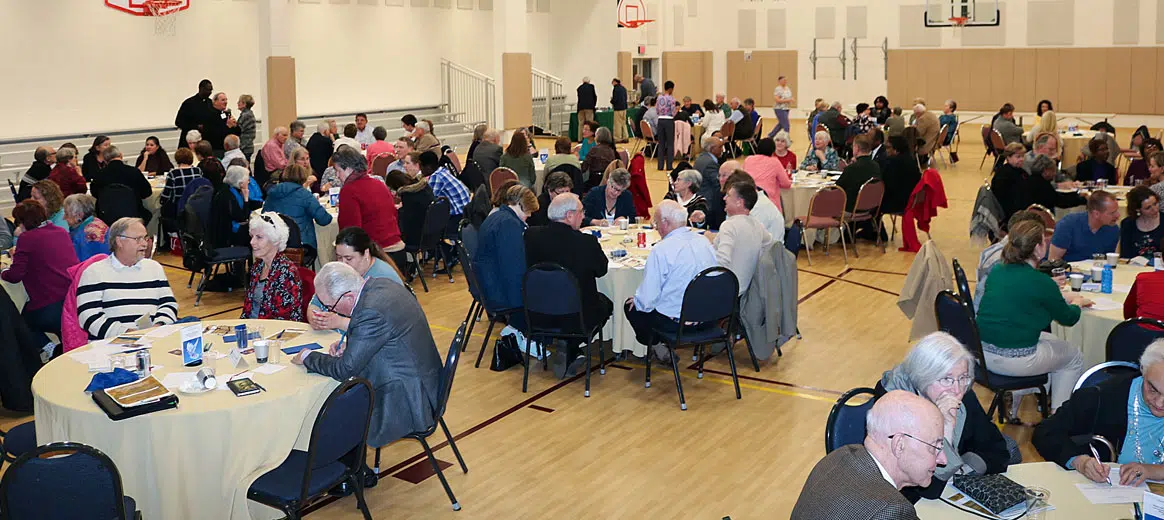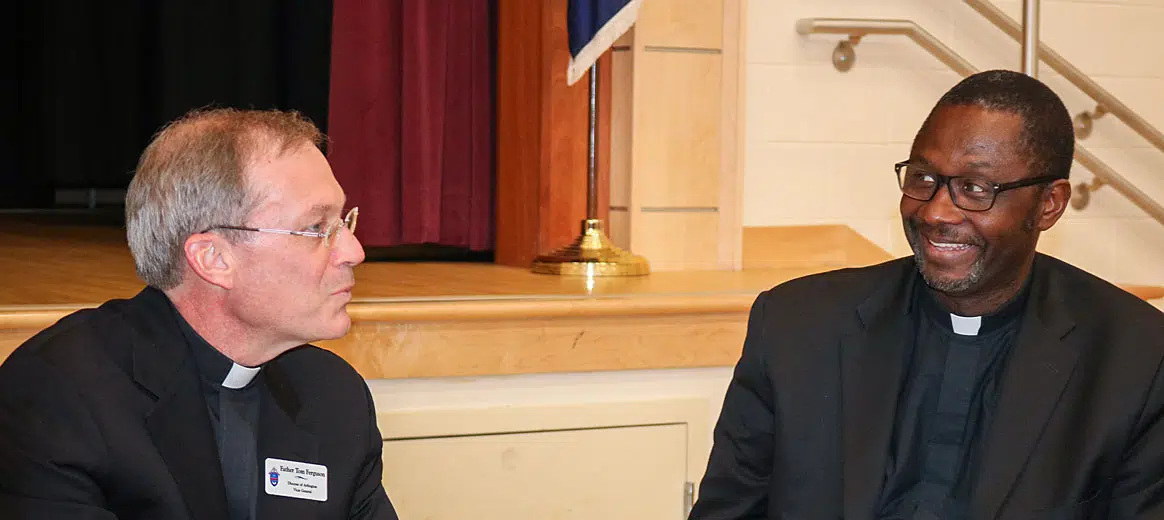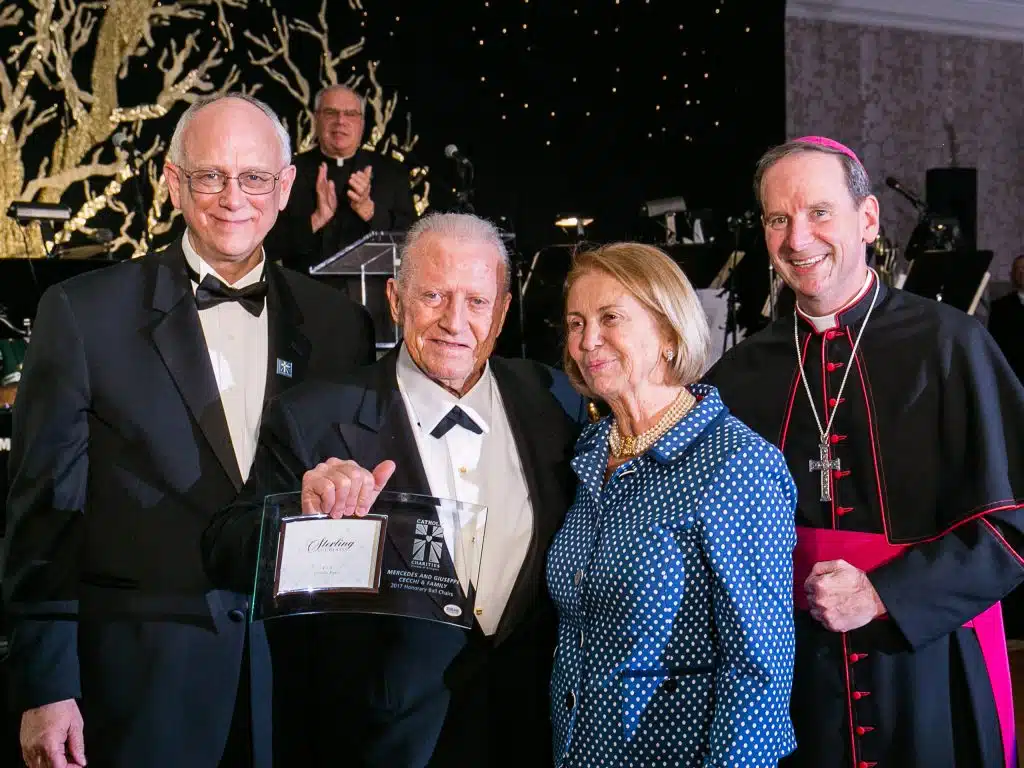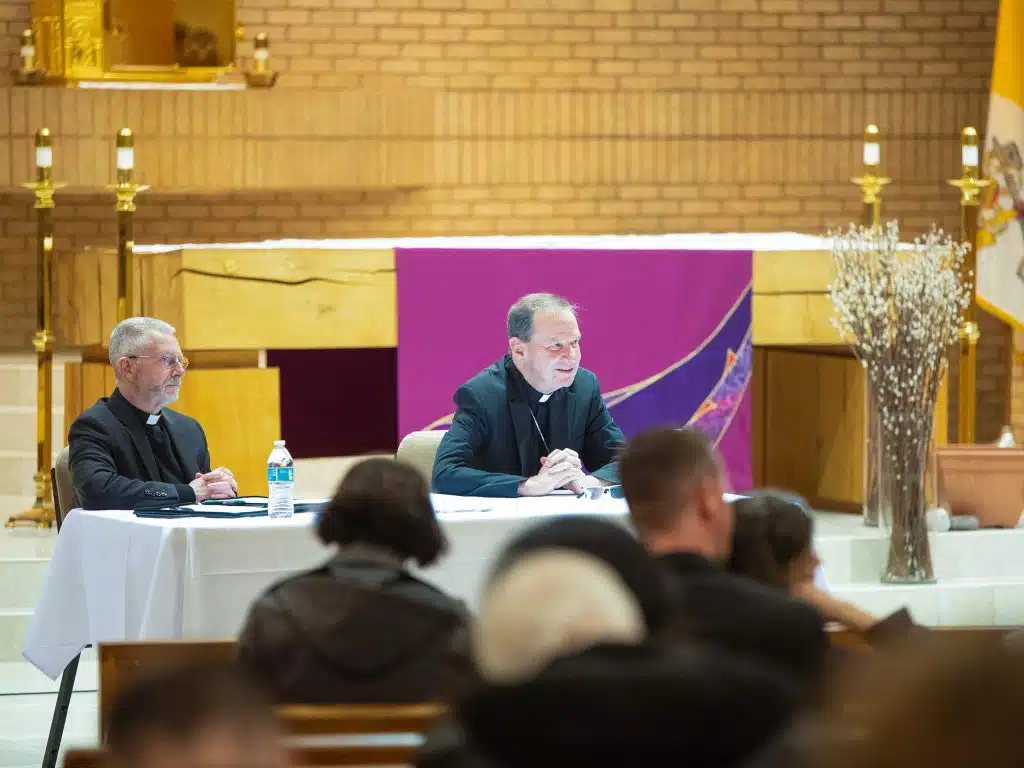Catholics are uniquely positioned to help resolve community conflicts fairly and peacefully, a Ghanaian priest and conflict studies specialist told a diocesan conference Feb. 18.
But Catholics need
to recognize the special resources their faith provides and be willing to use
them in the cause of “conflict transformation,” Father Clement Aapengnuo told a
receptive audience of about 200 at the Church of the Nativity Fr. Richard B.
Martin Center in Burke.
“When it comes to
peace building, the Catholic Church is a sleeping giant,” said the priest known
as “Father Clem.” “We have teaching on peace, teaching on the human being … our
social teachings (acknowledge) the indispensable link between social justice
and authentic Christian living ….
“As a people of
faith, we are invited to step up to the plate and make a difference.”
The presentation
was sponsored by the diocesan Peace and Justice Commission, chaired by Father
Gerry Creedon, pastor of Holy Family Church in Dale City. The speech was
followed by roundtable discussions that explored possible solutions to
hypothetical conflicts, such as those caused by the sudden appearance of
refugees, a day labor center, or a planned mosque in a Northern Virginia
community.
The speaker, from
Damongo, Ghana, is well-versed in conflict studies. He received a doctorate in conflict
analysis and resolution from George Mason University in 2012, and is founding director
of the Center for Conflict Transformation and Peace Studies in Damongo.
While studying at
George Mason, Father Clem served at St. Charles Borromeo Church in Arlington
during Father Creedon’s tenure as pastor.
He noted that
Ghana, which marks 60 years of independence March 6, is a real world classroom
for the study of conflict. The nation, a democratic republic with an elected
president and parliament, is made up of at least six major ethnic groups, none
forming a majority. Three-quarters of
Ghana’s residents are Christians, divided into Catholic and several Protestant denominations.
The remaining quarter is Muslim or practitioners of ethnic religions.
“You ask people ‘How
do you wage war?’ We can tell you pretty well how to do it,” the priest said.
“Ask ‘How do you wage peace?’ They give you that stare.”
Father Clem’s
answer is to be “proactive” rather than “reactive.” He drew on an example from last December,
when Ghanaians went to the polls to elect a new president. Traffic on social
media, including rumors of floggings of women by Muslim clerics and support for
sharia law, suggested a heightened threat of anti-Muslim violence in a
particular district. Father Clem brought together Muslim and Christian leaders
for a talk by an expert on the “Abrahamic religions” — Judaism, Christianity
and Islam. The leaders, he said, had been largely unaware of their common
patrimony. Their suspicions, he said, were greatly reduced, and a fruitful
dialogue followed.
Among Father Clem’s
other tips for resolving conflicts:
-Place the parties
in the same room, and make sure that “name calling” is forbidden.
-Permit anyone to
“leave anytime”; you will find that few do.
-Get to the basis
of an individual’s anger. Often, Father Clem says, a person has lost sight of
this himself.
Audience members
found Father Clem’s approach to be both simple and elegant.
“He’s a great guy,
and he’s been dedicated (to conflict resolution) for a long time,” said Pete
Roth, a parishioner of St. John Neumann Church in Reston, and a friend of Father
Clem’s since his student days in Northern Virginia.
After the speech,
roundtable participants spent about 45 minutes discussing hypotheticals. Father
Clem urged them to practice “creative” problem solving, and as an example
offered an African tale of a man to whom God promised to grant “one wish.” The problem, he continued, was that the man
was hungry, his mother was blind and his wife desperately wished to bear a
child.
What to do? A friend
supplied a “creative” answer.
“Tell God your
mother wants to see her grandchildren eating from a golden bowl,” the friend
said.
“First and
foremost,” Father Clem concluded, “we must allow the Prince of Peace to touch
us … “and not get in the way … of God’s mercy.”
Roundtable facilitators
included Al Anderson Jr., chair of Diocesan Black Catholic Ministries; Terry
Angelotti, executive director, Centreville Immigration Forum; Joan Coolidge,
Northern Virginia regional director, Ignatian Volunteer Corps; Susan Grunder,
Good Shepherd Social Ministry; Cathy Hassinger, director of Community Services,
Catholic Charities; Tim Sample, CEO, 72 Africa; and Liz Schiavone, president,
Arlington Diocese Council of Catholic Women.
Willling is a freelancer
from McLean.




